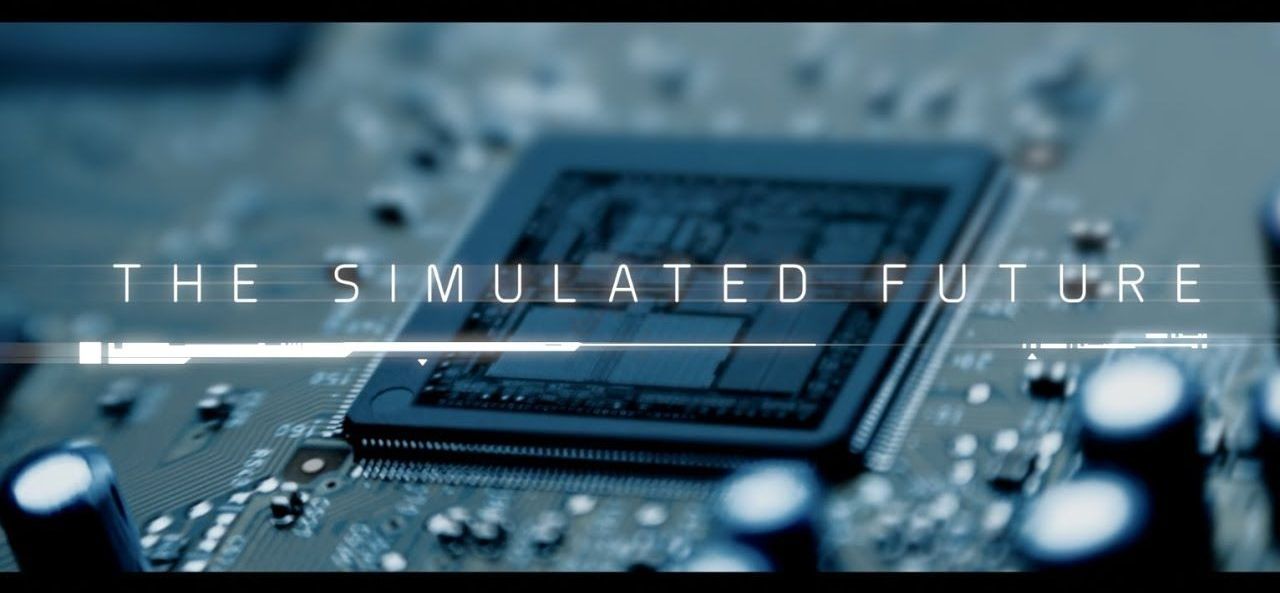Page 10193
May 1, 2018
US tech ban on ZTE exposes China’s Achilles’ heel
Posted by Derick Lee in category: economics
Even more importantly, it will have wider repercussions on the overall development of China itself. Inevitably, it will hinder the country’s ambition to narrow the technology gap with the developed West.
China’s reliance on key technologies from the West shows it still needs the developed economies much more than they need China.
By Cary Huang
Continue reading “US tech ban on ZTE exposes China’s Achilles’ heel” »
Apr 30, 2018
Blue Origin Is Testing Reusable Rockets. Here’s Why You Rarely See Them
Posted by Michael Lance in categories: innovation, space travel
Rough translation: Blue Origin doesn’t give a damn about SpaceX’s media circus. It’s not trying to outdo competitors with each subsequent project — the company is working on just two rockets (New Shepard and New Glenn) with hopes to launch a manned flight before the end of 2018. Blue Origin is worrying about Blue Origin. That’s it.
It’s a bit too early to tell whether Blue Origin’s strategy is any better than SpaceX’s, or vice versa. Competition is a powerful force for innovation. But with the commercial space industry quickly growing (and SpaceX threatening to monopolize it), it’s easy enough to keep innovating in an effort to one-up the competition, losing sight of the main goal in the process.
One way to judge who wins? Whoever sends humans farther than they’ve ever gone. In that sense, the companies are striving for the same goal in the long term, and those that keep their eyes on the prize might fare best. In her interview with Engadget, Blue Origin’s Dietrich said that the company’s vision of millions of people living and working in space meant that they “are applauding all launch operators that are building new and more capable systems.”
Apr 30, 2018
Earth’s Terrifying Magnetic Field Reversal Just Got a New Timeline
Posted by Genevieve Klien in category: futurism
Scientists say the South Atlantic Anomaly, a disturbance in Earth’s magnetic field, doesn’t indicate that it’s about to reverse polarity. By studying past geological scenarios, researchers conclude that the current weirdness in Earth’s magnetic field most likely won’t result in an excursion or even a full reversal.
Apr 30, 2018
The US lags behind 8 other countries in AI and automation readiness
Posted by Genevieve Klien in category: robotics/AI
The United States trails key global players in preparing its workers for the upcoming artificial intelligence takeover. It’s time to get to work.
Apr 30, 2018
Virgin Hyperloop One wants to cut 4-day cargo truck trips to 16 hours
Posted by Genevieve Klien in category: transportation
Virgin Hyperloop One and trade logistics company DP World have created a new cargo brand “built for an on-demand world.”
Apr 30, 2018
Astronomers See a Pileup of 14 Separate Galaxies in the Early Universe
Posted by Genevieve Klien in category: cosmology
Looking deep into the observable Universe – and hence, back to the earliest periods of time – is an immensely fascinating thing. In so doing, astronomers are able to see the earliest galaxies in the Universe and learn more about how they evolved over time. From this, they are not only able to see how large-scale structures (like galaxies and galaxy clusters) formed, but also the role played by dark matter.
Most recently, an international team of scientists used the Atacama Large Millimeter-submillimeter Array (ALMA) to observe the Universe when it was just 1.4 billion years old. What they observed was a “protocluster”, a series of 14 galaxies located 12.4 billion light-years away that were about to merge. This would result in the formation of a massive galaxy cluster, one of the largest objects in the known Universe.
The study which described their findings, titled “A massive core for a cluster of galaxies at a redshift of 4.3”, recently appeared in the journal Nature. The study was led by Tim Miller – an astronomer from Dalhousie University, Halifax, and Yale University – and included members from NASA’s Jet Propulsion Laboratory, the European Southern Observatory (ESO), Canada’s National Research Council, the Harvard-Smithsonian Center for Astrophysics, the National Radio Astronomy Observatory, and multiple universities and research institutions.
Continue reading “Astronomers See a Pileup of 14 Separate Galaxies in the Early Universe” »
Apr 30, 2018
Deepcric – Deep learning and Cricket
Posted by Sean Cusack in categories: biotech/medical, robotics/AI
Deepcric is a deep learning system for cricket. It looks at cricket video and does scene segmentation, scene classification, automatic commentary generation, targeted highlights generation, player identification, and player stats extraction.
Deep learning has been applied everywhere. From imagenet [1] to disease identification [2] to large-scale video classification [3] to text classification [4], there are barely any areas where people have not applied deep learning. But interestingly, there has been very little work in applying data science and deep learning to the game of cricket. This post is a detailed overview of my final year project at the FAST National University. We have developed a deep learning based system that is able to do many tasks in cricket in an automated way. Some of these tasks are:
Apr 30, 2018
Exploration of transhumanism movement wins Wellcome book prize
Posted by Steve Nichols in category: transhumanism
Mark O’Connell’s To Be a Machine, about humanity’s attempts to conquer death through technology, wins £30,000 prize.
Mon 30 Apr 2018 13.59 EDT Last modified on Mon 30 Apr 2018 17.00 EDT.
Continue reading “Exploration of transhumanism movement wins Wellcome book prize” »
Apr 30, 2018
Futurist Gray Scott
Posted by Bill Kemp in categories: business, quantum physics, robotics/AI, singularity, virtual reality

https://www.patreon.com/GrayScott
Newsletter — https://www.grayscott.com/newsletter
Twitter: @grayscott
Instagram: https://www.instagram.com/gray_scott/
Transcript:















